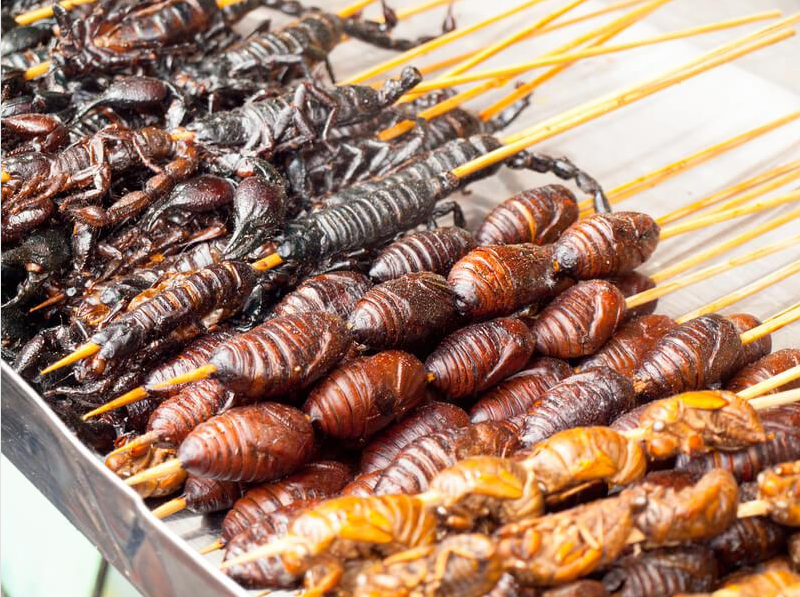Insect meatballs – Source: Coop Last year, Switzerland’s federal government announced plans to authorise the commercialisation of insects and worms as domestic food products, and the new law came into effect this week on 1 May 2017. According to 24 Heures, supermarket Coop will launch a new range of insect-based products this month. High in protein, insects come with a low carbon footprint and resource requirement. Coop is working with the startup Essento, which has spent three years developing insect-based cuisine. According to the company, crickets taste like chicken, and meal worms have a nutty flavour. Producing insects requires very little water and food, and produces little greenhouse gas. An insect burger capable of replacing beef would have a significant impact on global greenhouse gas emissions. Beef comes with five times the greenhouse gas impact of chicken and eleven times that of vegetables. Global beef production adds more greenhouse gas to the atmosphere than cars. Insect street food in China © Anastasiia Maltseva | Dreamstime.com Insects can also be fed on organic waste, such as vegetable scraps, reducing waste further while improving the economics. Eating insects is nothing new.
Topics:
Investec considers the following as important: Featured, newsletter, Swiss Markets and News
This could be interesting, too:
Nachrichten Ticker - www.finanzen.ch writes Die Performance der Kryptowährungen in KW 9: Das hat sich bei Bitcoin, Ether & Co. getan
Nachrichten Ticker - www.finanzen.ch writes Wer verbirgt sich hinter der Ethereum-Technologie?
Martin Hartmann writes Eine Analyse nach den Lehren von Milton Friedman
Marc Chandler writes March 2025 Monthly
Last year, Switzerland’s federal government announced plans to authorise the commercialisation of insects and worms as domestic food products, and the new law came into effect this week on 1 May 2017. According to 24 Heures, supermarket Coop will launch a new range of insect-based products this month.
High in protein, insects come with a low carbon footprint and resource requirement.
Coop is working with the startup Essento, which has spent three years developing insect-based cuisine. According to the company, crickets taste like chicken, and meal worms have a nutty flavour.
Producing insects requires very little water and food, and produces little greenhouse gas.
An insect burger capable of replacing beef would have a significant impact on global greenhouse gas emissions. Beef comes with five times the greenhouse gas impact of chicken and eleven times that of vegetables. Global beef production adds more greenhouse gas to the atmosphere than cars.
Insects can also be fed on organic waste, such as vegetable scraps, reducing waste further while improving the economics.
Eating insects is nothing new. National Geographic says that two billion people around the world regularly eat them, and offers a guide to eight tasty ones. Wasps apparently taste like pine nuts, and stink bugs like apples.
In Europe, the challenge is likely to be perception. Just ask Britons or Americans what they think of eating horse meat.
Tags: Featured,newsletter


